1958: Only world government can prevent the war nobody can win
By Bertrand Russell | December 7, 2020
1958: Only world government can prevent the war nobody can win
By Bertrand Russell | December 7, 2020
Editor’s Note: This speech was to have been given July 5, 1958 by Lord Russell in Basel, Switzerland, at a nuclear disarmament campaign conference which was banned by the Swiss government. It was originally published in the September 1958 issue of the Bulletin and is republished here as part of our issue commemorating the Bulletin’s 75th year.
We are here assembled to consider the most grave and terrible problem with which mankind has ever been confronted. Ways have been discovered by which, in all likelihood, the human race could be destroyed, or, at best, reduced to a few destitute wanderers. And there is every reason to believe that, if a great war breaks out, the new weapons will be used to the full in spite of their catastrophic destructive ness.
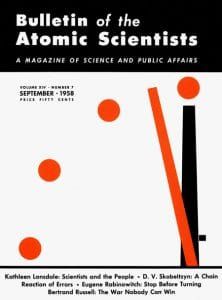 To solve this problem, even in theory, is by no means easy; and to solve it in practice is appallingly difficult. Nevertheless, a practical solution must be found if the human race is to continue.
To solve this problem, even in theory, is by no means easy; and to solve it in practice is appallingly difficult. Nevertheless, a practical solution must be found if the human race is to continue.
The measures required are of two different kinds. There are, first, those that aim only at minimizing the day-to-day risk of an outbreak of war; and there are, second, the long-term measures that will be required if a great war is to be avoided throughout a long future. Before considering either of these, let us briefly survey the present policies of various powers, and the prospects which they hold out for the coming years.
As yet, only the United States, the USSR, and Britain possess the H-bomb. But France, Western Germany, Sweden, and Switzerland intend to acquire them shortly, and will do so unless active steps are taken to prevent this spread of insanity. In Germany, at any rate, scientists have conducted a vigorous and praiseworthy opposition to the official policy—indeed, scientists in many countries are doing what they can to avert the danger.
It is, of course, obvious that any increase in the number of Western powers possessing H-bombs will be followed by a corresponding increase among the Eastern powers: China, at any rate, will demand entry to the Nuclear Club. I think it may be confidently assumed that the Middle East will follow suit. The net result will be, not any change in the balance of power, but a great increase in the risk of war and in the difficulty of reaching agreement on abolition of these weapons.
On this ground, I should wish to see my own country renounce the bomb and use its influence to secure an agreement confining the bomb to Russia and America. Such an agreement would not, of course, put an end to the risk of nuclear war, but it would greatly increase the possibility of an agreement by the two giants.
It is chiefly in this connection that the abolition of tests is important. Tests are harmful because they poison air and water and food, and do genetic damage of unknown magnitude. But, in spite of these evils, the harm done by tests is not in any degree comparable to the harm that would be done by nuclear war and that is done by increasing its likelihood. If tests are forbidden, it will be very difficult for new powers to acquire H bombs. This is by far the most important reason for hoping for an agreement to abolish tests.
Between the two World Wars, and since the conclusion of the second, there have been innumerable conferences concerned with disarmament. Disarmament, per se, will not prevent war. But it is important, partly because, if achieved, it will diminish the mutual fears which now make negotiation difficult, and partly because, at present, each side fears an unprovoked nuclear attack by the other, and therefore preserves an instant readiness for retaliation, which makes the danger of accidents and mistakes a constant menace.
On this ground, above all others, some such partial disarmament as would make an attack in the style of Pearl Harbor impossible is profoundly desirable. But the history of disarmament conferences is one of the most discouraging chapters in human history. The proposals have been such that those who made them felt certain they would be rejected; when, to the horror of those who made the proposals, the other side has accepted them, they have been withdrawn. If any good is to come of future disarmament conferences, both sides will have to come to think that agreement is more important than putting the other side in the wrong.
There is one exception to the insincerity of governments as regards disarmament: it is the Baruch Proposal, which the United States put forward while it still had a monopoly on atomic power. This proposal was generous and wise, and, if Russia had accepted it, Russia and the West and the world would not have been exposed to the perils which at present menace them. But the Baruch Proposal is now ancient history and cannot be revived to meet present needs.
Ignorance of Statesmen. One of the most alarming things about the world in which we are trying to live is the ignorance, genuine or assumed, of the eminent statesmen who guide the poli cies of the most powerful nations. I read in The Times (London) of June 27, 1958 that Mr. Dulles “recently warned a committee of Congress that the American way of life is in greater jeopardy from the Cold War than it would be from a hot one. An open war they could win, but ‘I do not know if we will win this cold war or not.’”
A statement of this sort cannot but inspire despair. Does Mr. Dulles really think that anybody could “win” a hot war, or does he merely pretend to believe it in order to encourage bellicosity in his dupes?
Exactly similar questions are to be asked of Mr. Khrushchev. In a letter to me he says:
“However much our opponents may slander us, the Socialist countries will not disappear because of that, and Communism, the most progressive and humanist teaching, will not cease to exist. How many attempts there have been to destroy Communism by force of arms! …
“I think that if imperialism unleashes a new world war, it will perish in it. The peoples will not want to put up with a system which cannot exist without wars, without the annihilation of millions of people, to enrich a handful of monopolists.”
This passage makes it evident that Mr. Khrushchev, like Mr. Dulles, imagines it possible for his own side to be victorious in a nuclear war, or, at any rate, pretends to imagine this. On this point I cannot see anything to choose between these two eminent statesmen. Both, it seems, are willing, either ignorantly or recklessly, to lead mankind to universal death rather than make even the smallest concession in negotiations. It is plainly the duty of congresses such as this to state with the utmost emphasis that the views of such men as Mr. Dulles and Mr. Khrushchev are utterly disastrous, and would receive almost no support if the facts were widely known. Those who wish to lead the world away from the abyss toward which present policies are leading us, have a very difficult task before them. They have not only to think of measures which would be beneficent if adopted, but they have also to face the practical political problem of finding measures which populations and governments may be willing to adopt and of discovering ways of advocating such measures, both in the East and in the West, in spite of the opposition of the authorities and of most of the organs of publicity.

Measures for the preservation of peace are not likely to be concluded until there is, on both sides, a much greater realization than now exists that the necessity of coexistence makes the continuation of hostile feeling futile and dangerous. There will have to be, on both sides, a wish that negotiations should reach fruitful conclusions and should not be designed merely to show the wickedness of the other side.
It is the duty of all who have any care for mankind to do everything in their power to persuade both East and West that coexistence is the only alternative to nonexistence, that the hope of victory is a delusion, and that armaments, so far from affording protection, only increase the danger to all. Armaments races in the past have almost invariably ended in war, and there is no reason to expect a different result from the present armaments race. Mr. (afterwards Lord) Baldwin, a Conservative Prime Minister, not a Quaker or a pacifist or a crank, spoke on this subject as long ago as the year 1932:
“Fear is a very dangerous thing. It is quite true that it may act as a deterrent in people’s minds against war, but it is much more likely to make them want to increase armaments to protect themselves against the terrors that they know may be launched against them. We have to remember that aerial warfare is still in its infancy, and its potentialities are incalculable and inconceivable.”
But no one listened to him, not even himself.
The psychology of an arms race is quite simple and straightforward. A arms against B, and B arms against A. A and B, alike, are persuaded that their own armaents are purely defensive, while those of the other side are intended for attack. Each side concludes that the only safety lies in being stronger than the other side, and therefore devotes itself to inspiring fear in the other side. Fear inspires hatred. Hatred inspires impatience. Patriotism inspires an unwarranted hope of victory. In the end, war breaks out.
It is deeply unfortunate that events occur which are a stimulus to hostility and to a kind of self-righteousness which, even when justified, is not very useful. The treacherous judicial murder of Nagy and his friends has profoundly shocked the non-Communist world—and rightly so—and has given fresh reason for the conviction that a treaty will not be observed unless a system of inspection exists which makes evasion almost impossible. When, a few years ago, there seemed a possibility of more friendly relations between East and West, this hope was dashed by the brutal suppression of the Hungarian Revolt and by the fantastically insane escapade of the Anglo-French Suez Expedition.
The harm that is done by such incidents extends far beyond the incidents themselves, since it facilitates an attitude of pious horror in which the necessity of cooperation is forgotten. The necessity remains even when the horror is justified, but the psychological difficulty of preserving a wish for cooperation easily becomes insuperable. For this reason, even more than for any other, bad behavior on the part of any of the great powers can cause wise policies to be abandoned.
If a cooling of passions could be achieved, various measures which are now difficult would become within the domain of practical politics. Agreed disarmament is perhaps the most urgent of these, but there are others that are scarcely less important. Disengagement in Central Europe might greatly diminish the risk of war. What would be best would be the evacuation by both Russia and the Western Powers of all territory in Europe not belonging to their respective states. But, short of this, the establishment of a neutral zone would be a great boon. Any measure of this sort must be such as to give no net advantage to either side. I should like to see an agreement among all the powers to submit every dispute to a body of arbitrators, say three for one side, three for the other, and three neutrals.
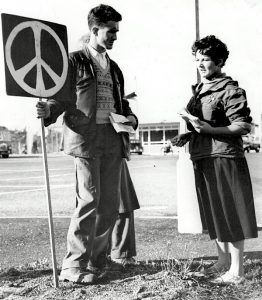
Federal World Government. The United Nations was intended, when it was formed, to be an impartial international authority to which disputes could be submitted without danger of bias toward either side. It does not, at present, fulfill this function. China, the most populous state in the world and likely, within a few decades, to be the most powerful, is not a member; and, on this ground, Communist countries cannot regard the United Nations as impartial. If this organization is to fulfill its purposes, it must embrace all states, and the veto must be abol ished.
The United Nations, or some similar body, must gradually acquire the functions of a world government in all that concerns peace or war. The problem that has to be solved is not merely that of avoiding war for a few years or a few decades. It is that of avoiding serious war forever.
Whatever measures of disarmament may be adopted, nuclear warfare, bacteriological warfare, and chemical warfare will remain possibilities, and may be resorted to at any time when a global conflict breaks out. It is therefore imperative, if we wish human life to continue, to devise machinery for the permanent prevention of great wars. The only such machinery that seems possible is a single federal world government, possessing a monopoly of all the serious weapons of war.
Europe and America have been accustomed to regarding themselves as the sole repositories of important power. But this is a situation which cannot long persist. Asia contains about half the population of the world and is likely, very soon, to contain much more than half. It is industrializing very fast, and is no longer prepared to accept Western culture as superior to its own. It is not to be wondered at if Western countries, including Russia, have incurred the contemptuous hatred of the East. President Sukarno of Indonesia points out i a letter to the New Statesman of June 28 that the nations of European descent, including Russia, are claiming the right to exterminate the uncommitted populations of the world as an accidental byproduct of their own frenzied lunacy. “We utterly deny you,” he says, “the right to cause cancer in our children. It is past time for the West, Communist and anti-Communist alike, to draw back from the edge of complete moral bankruptcy. It is explicitly your task to utilize the skill and technique of your science for peaceful purposes.”
Will the West listen to such pleas? Or shall we continue to prate of our lofty Christian morality, on the one side, and of our determination to free the workers from ancient bondage, on the other, while we callously prepare, not only our own extinction, but that of all who hold aloof from our Dance of Death?
I do not know what our choice will be, but I do know that it is the supreme and most urgent duty of all who retain any vestige of rational thinking and humane feeling to devote their utmost endeavors to the awakening of populations and their rulers. We are leading the world toward destruction, with lofty watchwords on our lips, and many with noble though mistaken purposes in their hearts. Those among us who see what must be done are, as yet, a minority in both contending camps. But head and heart, alike, assure that we are in the right, and, if we are steadfast, wise, and eloquent, there is good hope that we may prevail.
Together, we make the world safer.
The Bulletin elevates expert voices above the noise. But as an independent nonprofit organization, our operations depend on the support of readers like you. Help us continue to deliver quality journalism that holds leaders accountable. Your support of our work at any level is important. In return, we promise our coverage will be understandable, influential, vigilant, solution-oriented, and fair-minded. Together we can make a difference.
Keywords: China, archive75, arms negotiations, arms race, disarmament, nuclear tests, nuclear weapons, world government
Topics: Nuclear Weapons

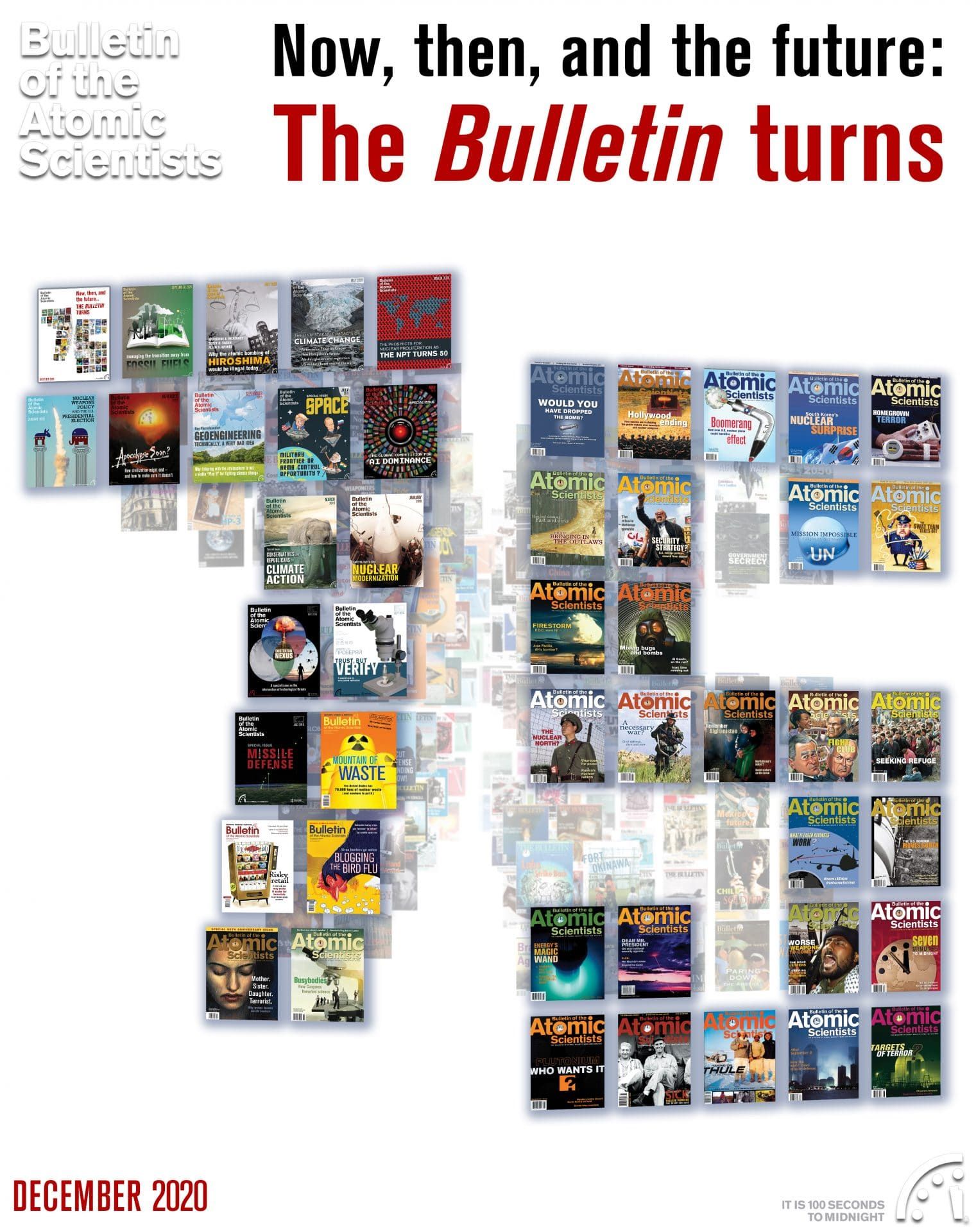

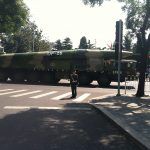



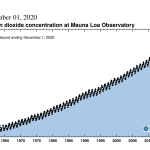
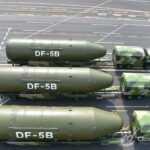












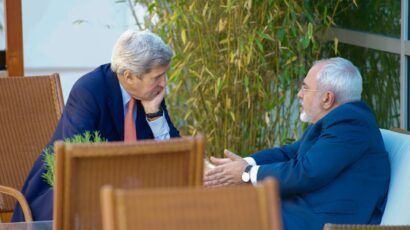
Russell mentioned Dulles. It’s worth mentioning that the Dulles brothers were behind the overthrow of Guatemala’s democratically elected government in 1954. They were Wall St. lawyers, and one of their clients was United Fruit, which had previously owned Guatemala. When Pres. Jacobo Arbenz started nationalizing industries, John Foster Dulles (as secretary of state) convinced Eisenhower to get rid of him, which Allen Dulles (as CIA director) was delighted to do. Once Arbenz fled, the US installed a series of murderous regimes, always calling them “free” governments.